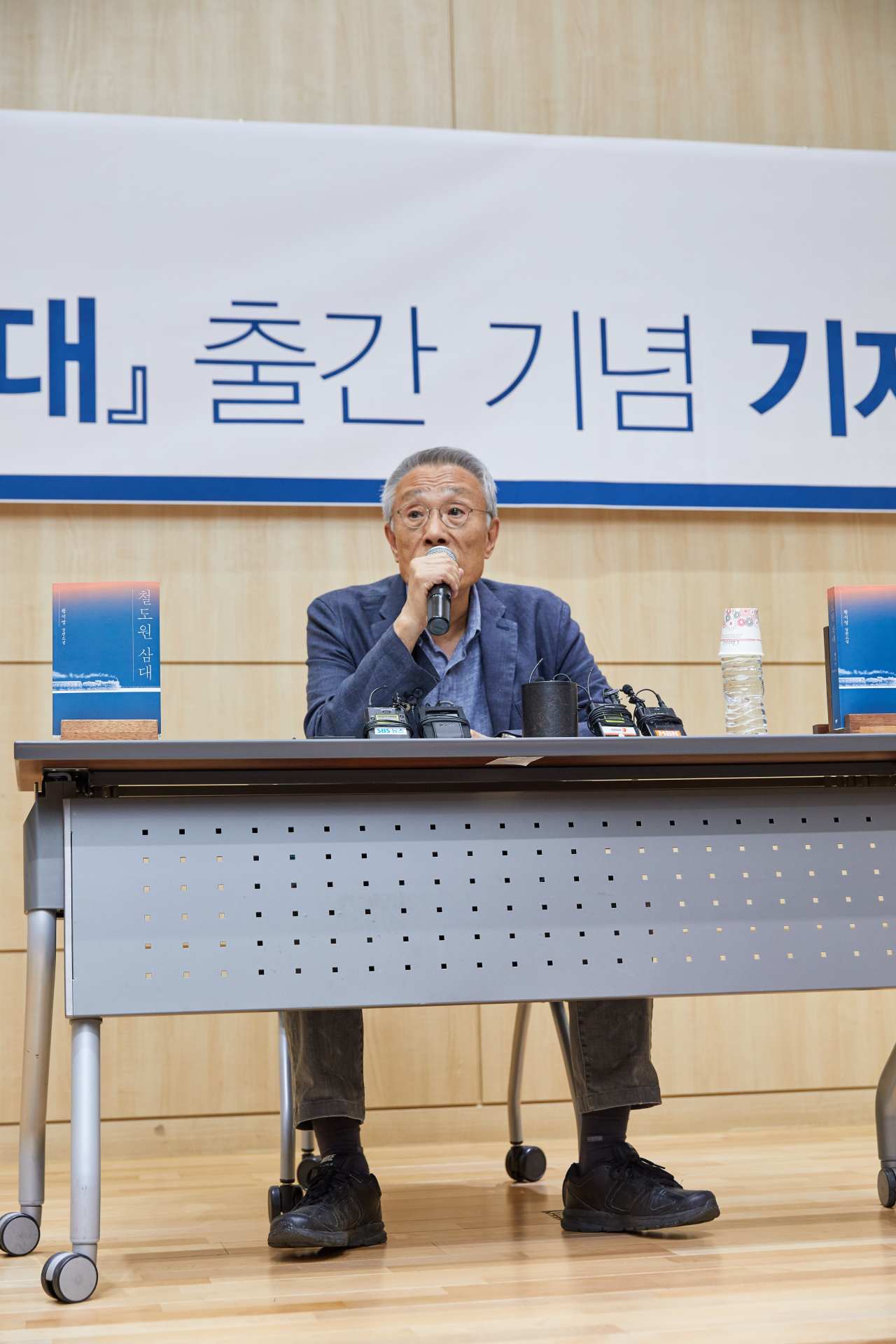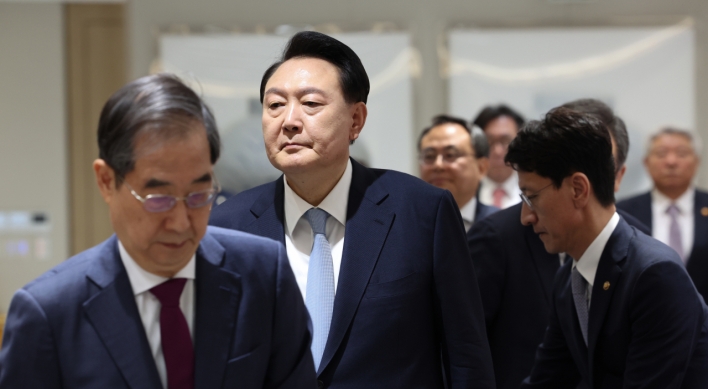Hwang Sok-yong hopes to revive discontinued Lotus Prize rather than win Nobel liberature prize
By Song Seung-hyunPublished : June 2, 2020 - 16:48

Hwang Sok-yong, one of South Korea‘s best known writers, said he would rather bring back the Lotus Prize for Literature than win a Nobel prize, during a press conference held Tuesday for the release of his latest novel “Three Generations of Railworkers.”
The Lotus Prize for Literature was an award organized by the Afro-Asian Writers‘ Association that was presented annually to African and Asian authors between 1969 to 1988.
“I was named (as a possible winner of the Nobel Prize) several times. But it does not matter to me,” Hwang said.
“The judges of the Nobel prize, how many of them do you think have visited Asian countries?” he said. “If we need an award, we might as well create our own among Asian and African countries.”
He also emphasized that Asian countries’ unique political and historical backgrounds are not fully understood and appreciated by the judges of the Nobel prize.
“There were times when Korean literature grew dramatically and some thought that we should win the Nobel prize, as if it were an Olympic medal,” he added. “But that’s ancient history.”
During the press conference, the 77-year-old novelist highlighted that his new book reflected many of the realities of Korean society.
“Korean industrial workers are not often dealt with in modern Korean literature. I wanted to fill that gap,” he said.
As Hwang sees it, there is not enough literature about industrial workers because the Korean labor movement has its basis in socialism, an ideology that was often considered inappropriate in the past.
Hwang also shared a story about where he got the inspiration for the new book.
“It was back in1989 when I visited Pyongyang. There I met an old man at a department store who is from Yeongdeungpo (Seoul) which is also my hometown,” he said.
“I found out that we share some memories about my hometown and I wanted to talk to him some more,” Hwang said. ”We met again later and we talked over bottles of soju for around 5-6 hours.”
He said the man shared stories about his father and him being a railway laborer in Seoul, and those stories became the author‘s inspiration.
Hwang also noted how he was fascinated by the Korean industrial workers who have been protesting at the top of a factory chimney for more than a year.
“They are neither on the ground nor flying in the sky and their daily life completely stops there. In the book, I used my imagination and made this protagonist on the chimney travel back in times (of his father and grandfather).”
During the press conference, Hwang also hinted about a new book that he has started working on.
“The next book after this will be a philosophical fairy tale book that both young children and adults can enjoy,” Hwang said.
Changbi, the publisher of the new novel, said the first 10,000 copies have been sold out and that 6,000 additional copies are being printed.
Several of Hwang’s works have been translated into foreign languages, including “The Guest: A Novel,” “The Shadow of Arms” and “The Old Garden.” In 2018, Hwang received the 2018 Emile Guimet Prize for Asian Literature for his novel “At Dusk.”
By Song Seung-hyun (ssh@heraldcorp.com)










![[KH Explains] How should Korea adjust its trade defenses against Chinese EVs?](http://res.heraldm.com/phpwas/restmb_idxmake.php?idx=644&simg=/content/image/2024/04/15/20240415050562_0.jpg&u=20240415144419)









